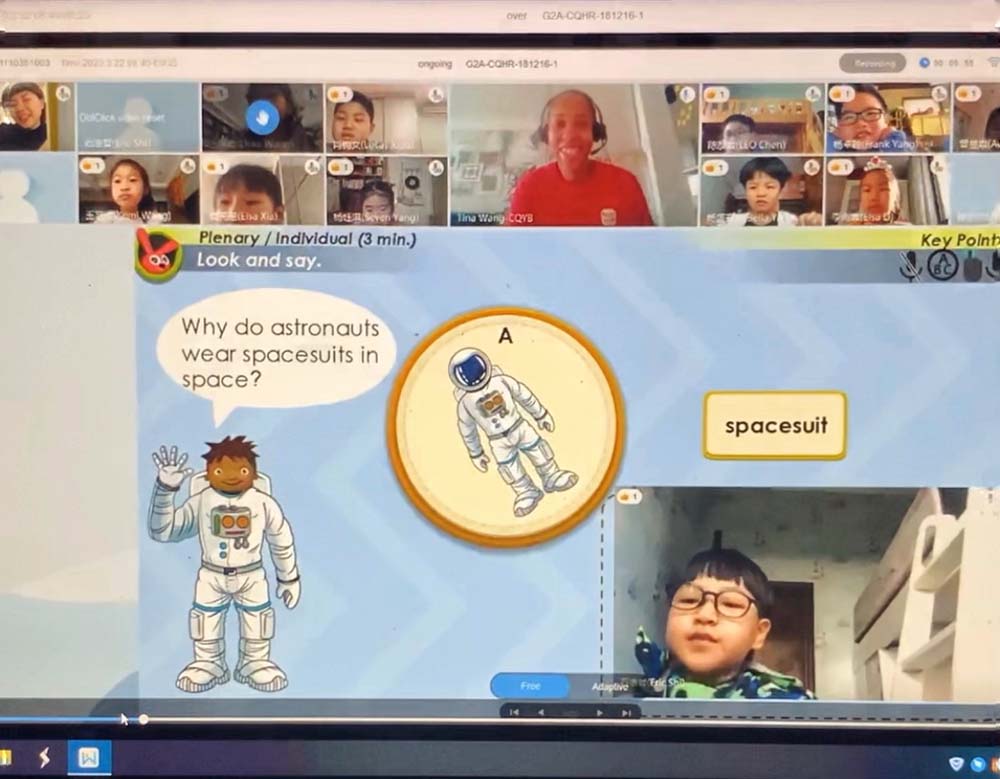Living Through The Coronavirus Right Here in China
Written By: Jessica Stanton | Updated: June 29, 2023
Written By: Jessica Stanton
Updated: June 29, 2023

Who would have thought living in a foreign country where a pandemic began would be better than living through it at home?
The most difficult thing about living in China during the COVID-19 pandemic, is seeing it being handled completely wrong in the US.
The outbreak began in December here in China. I was aware of it, but things were operating as normal so there was no cause for alarm. By mid January, we were all gearing up for our Chinese New Year holiday plans; the virus talk was barely a whisper in the background. As I prepped for my travels through Southeast Asia, I was sure to have my N99 mask, hand sanitizer, and wipes. Honestly I take all these things when I travel in Asia regardless, but I wore my mask to the airport and through my whole flight.
 Several days into my vacation, the word epidemic started getting thrown around and other travelers started to warn me of the danger back in China. Not really sure what to expect upon returning, and with the government extending the holiday, I continued to enjoy my vacation as much possible, although it was becoming clear Coronavirus was turning into a huge deal.
Several days into my vacation, the word epidemic started getting thrown around and other travelers started to warn me of the danger back in China. Not really sure what to expect upon returning, and with the government extending the holiday, I continued to enjoy my vacation as much possible, although it was becoming clear Coronavirus was turning into a huge deal.
My temperature was taken before I was allowed to enter my hotels in Malaysia, Singapore, and Cambodia. People were wearing masks everywhere, signs were up at every pharmacy saying along with hand sanitizer, masks were sold out, and most of all... I started getting strange looks anytime I mentioned “I’m visiting from China, I teach English there.” It was time to go.
With schools closed indefinitely across the country, my school decided to move to online classes. Despite my family trying to convince me to come home to the US, I felt it was better to just come back to Chongqing. My home was there, and so was my only source of income. Even though we were switching to online classes, my company would not allow us to teach from abroad. I was hoping I could ride this out in Indonesia or The Philippines, but if we didn’t return to our base cities in China, we were not going to be paid.

There were only about 500 cases in my city of 12 million, (province of 30 million) when I landed. I spoke with my landlord about the status of my building. I knew at some point while I was away, the city entered some state of quarantine, and some apartment complexes were in a full lockdown; no one in and no one out. Despite the language barrier, my return during the height of the epidemic in mid February was really smooth. I had my temperature taken, documented where I had been for the previous 4 weeks, and was told to self-quarantine for the next 14 days.
After traveling for a month, I was happy to be home alone. I ordered groceries and supplies for delivery. My job sent me a laptop to teach from, and a new normal began. A week after I came back, we resumed our regular teaching schedules, just online. There were a lot of glitches in the system, and we had basically no time to learn how to use all of the functions properly before having live classes.
 I work for a training school. In China, these are far more business-like than they are school. 80% customer service, 20% education. The first 2 weeks of online classes were rough. Parents, kids, teachers; we were all frustrated and stressed. Standard work hours went out the window as messages about classes were sent and received at all times of day and night. No one could hide since we were all at home!
I work for a training school. In China, these are far more business-like than they are school. 80% customer service, 20% education. The first 2 weeks of online classes were rough. Parents, kids, teachers; we were all frustrated and stressed. Standard work hours went out the window as messages about classes were sent and received at all times of day and night. No one could hide since we were all at home!
At the time of writing this, we’ve been teaching online for 6 weeks. Things have gotten much better. All the kinks are out, we’ve developed a flow, and best of all, no one is trapped inside anymore. Things began to slowly re-open in mid March. Everything has reopened in my city except schools. Many cities across the country are 100% up and running now.
Although we seem to be at the end of the pandemic in China, the push for online education is greater than ever. There will continue to be a demand for web-based qualified teachers. I had experience teaching English online for 51Talk prior to moving to China however, it really didn’t help me in this new situation. Group classes online are VERY different from one-on-one. Most of my classes now have 12-14 kids. All in their homes, or cars, with who knows what going in the background. The shift from a controlled classroom environment to this has been intense, but it’s made me incredibly dynamic as a teacher.
I’m no stranger to living in the unknown so I’ve actually been enjoying this home-based life. The only downside is experiencing the virus outbreak twice. It has been stressful worrying about friends and family in other countries. Aside from that, I’ve been able to think more clearly, exercise more, take online courses, tend to my indoor jungle of plants, read... I haven’t been bored at all!

Some schools in China have re-opened, but I don’t know when I’ll physically return to mine. The culture here has never been known to give much advance notice of anything. It’s important to note that COVID-19 is an evolving situation worldwide. When it first began, officials gave erroneous dates of re-opening. I’ve seen this mistake being repeated in each country as the spread grew. We are now living in a one-day-at-a-time world. Don’t rush. Remember that when things feel out of control, you’re still in control of your perspective. Quarantined or not, let’s not forget to make the most of each day!’
For more comprehensive information regarding your TEFL options during COVID-19, please read Coronavirus FAQs: TEFL & Teaching English Abroad or Online - What Are My Options?
Watching a video more your style? It's OK, we've got you covered! Check out our video addressing the issue below:
Posted In: Teach English in Asia, Teach English in China, Diversity Abroad, Chongqing, Coronavirus, Coronavirus Must Read
Jessica Stanton
Jessica Stanton grew up in Cleveland, Ohio, and Pittsburgh, PA. She was a medical assistant, hairstylist, and bartender in Charlotte, NC, before jetting off to teach English in Medellín, Colombia in July of 2016. After spending a couple of years there, she continued her journey onto Chongqing, China, where she is currently teaching English to children.
Want to Learn More About Teaching English Abroad & Online?
Request a free brochure or call 773-634-9900 to speak with an expert advisor about all aspects of TEFL certification and teaching English abroad or online, including the hiring process, salaries, visas, TEFL class options, job placement assistance and more.








